Iran's Guards Announce Seizure Of Another Ship For 'Fuel Smuggling'
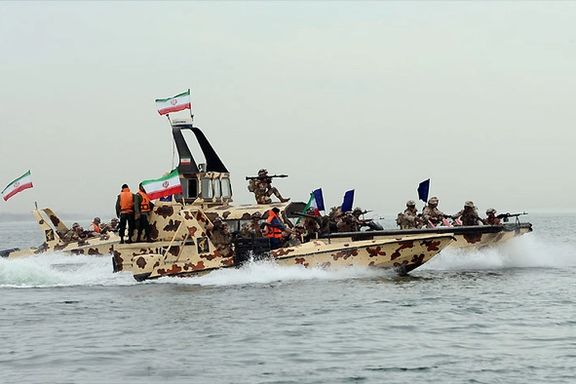
Iran's Revolutionary Guards (IRGC) have seized a foreign vessel in the Persian Gulf for smuggling 200,000 liters of fuel, a senior Guards commander said Sunday.

Iran's Revolutionary Guards (IRGC) have seized a foreign vessel in the Persian Gulf for smuggling 200,000 liters of fuel, a senior Guards commander said Sunday.
"The ship was seized in the northern part of the Persian Gulf. Its eight crew have been handed over to legal authorities in the southern port city of Bushehr," Gholamhossein Hosseini told Fars news agency affiliated with the IRGC, without elaborating on the nationalities of the crew members.
The IRGC has announced several similar fuel seizures this month, but they have not provided information about the port of origin or the destination of the cargoes. The powerful Guards control most of Iran’s ports through their military and intelligence presence.
It is not clear why seizures or claims of seizures have increased in recent weeks.
Iran, which has some of the world's cheapest fuel prices due to heavy subsidies and the plunge in value of its national currency, has been fighting small-scale fuel smuggling by land to neighboring countries and by sea to Persian Gulf Arab states.
The volumes seized from ships are relatively small in comparison to average oil tanker capacity. The vessels are usually small vessels conducting local trade in the Persian Gulf.
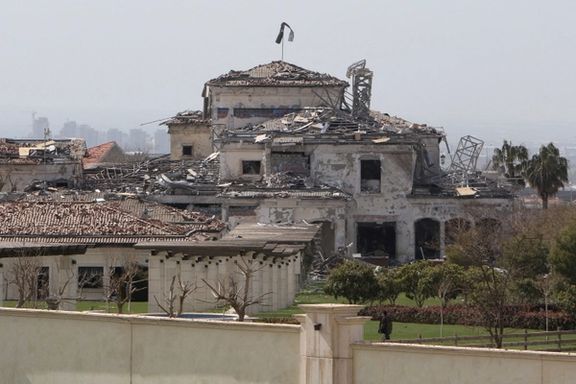
The Iraqi parliament was set to hold a meeting Sunday to discuss the recent attacks by the Iranian and Turkish militaries in the country.
The media office of the parliament's first deputy speaker, Hakem al-Zameli, said in a statement on Saturday that the deliberative meeting will also include Foreign Minister Fuad Hussein and the senior undersecretary of the Foreign Ministry, Nizar al-Khairallah.
The session was planned upon an official correspondence submitted by the head of the Sadrist bloc, and more than 50 lawmakers also signed it.
Last Monday, Turkey carried out air and land operations -- dubbed Operation Claw Lock – against Kurdish militants in northern Iraq that targeted camps and ammunition stores.
The military action was part of a long-running Turkish campaign in Iraq and Syria against the Kurdistan Workers Party (PKK) and the Syrian Kurdish YPG militia, both regarded as terrorist groups by Ankara.
The PKK took up arms against the Turkish state in 1984. More than 40,000 people have been killed in the conflict, which in the past was mainly focused on southeast Turkey.
Iran also has armed Kurdish opposition in Iraq, although they are distinct from the PKK, which mainly operates in Turkey and Iraq.
On March 13, Iran itself attacked sites in the capital of Iraqi Kurdistan Erbil with a dozen ballistic missiles, with reports saying the unprecedented assault was meant to derail a plan to pump Kurdish gas to Turkey and Europe.
Iran says the attack targeted Israeli intelligence sites operating in the autonomous Kurdish region.
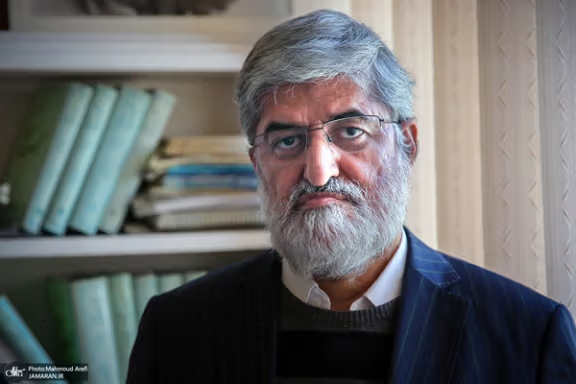
A religious conservative politician, Ali Motahari, has called on Iranian footballers playing abroad to advertise Islam through showing off their fasting during the month of Ramadan.
The former lawmaker said in a tweet on Saturday that Porto’s striker Mehdi Taremi breaking his fast in the middle of a sensitive match is a good advertisement for Islam.
He added that other Iranian players in Europe should be like this.
Motahari, whose father was a famous cleric, has been critical of political suppression in Iran in recent years, but he remains a religious conservative.
Motahari also referred to similar symbolic gestures such as a sajdah -- the act of kneeling and bowing to touches the ground with the forehead – by Egyptian footballer Mohamed Salah after scoring goals, and Real Madrid’s French player Karim Benzema breaking his fast only minutes before an important match against Chelsea.
His comment came as the Islamic Republic is trying to encourage people to observe Islamic traditions. Fewer people have been observing the Muslim fasting period in recent years but police arrest and fine anyone who breaks the rules in public.
As the fasting month of Ramadan started, Iran’s prosecutor-general called on the police to confront those eating and drinking in their cars during daylight.
Every year police enforce a national plan to deal with those who break Ramadan rules in public, and transgressors are sometimes sentenced to months of detention and lashes.
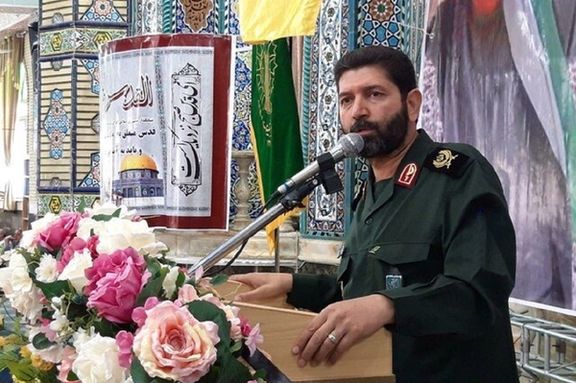
A Revolutionary Guard commander fears that some in Iran might surrender to the idea of limiting IRGC's power in a bid to make a nuclear deal with Washington.
Speaking before the Friday prayers in Tehran on April 22, Gen. Hassan Hassanzadeh called those elements "lowly people and those who have sold their soul to the enemy."
Hassanzadeh is a key figure although he is not often mentioned in the media. He is the commander of IRGC forces in the capital Tehran, a fearsome unit that has been often used to suppress popular protests and is tasked with defending the Islamic Republic's centers of power.
Nuclear talks with Iran have come to a standstill since March after Tehran demanded that Washington remove the IRGC from its Foreign Terrorist Organization list.
The Biden administration has said that if Iran wants sanctions relief beyond those imposed for its nuclear activities it should be ready to negotiate over regional issues, effectively meaning limiting its interventions in other countries.
Iran's Foreign Minister had said in March that IRGC commanders are prepared to sacrifice their interest for the greater interests of the Islamic Republic and forego the call for delisting the IRGC to facilitate an agreement between Tehran and Washington.
Hassanzadeh said: "I wish to tell all the enemies and mean elements who have sold their soul to the enemies that the IRGC will never and by no means be limited."
The Commander of the IRGC's naval force Alireza Tangsiri on Thursday announced that Iran will not give up its intention of seeking revenge for the killing of former Qods Force Commander Qasem Soleimani, insisting that the IRGC would never forget the idea of seeking revenge.

The commander of IRGC's ground forces Mohamad Pakpour also claimed that "even the killing of all of US leaders will not be enough as a revenge for the murder of Soleimani."
These comments by IRGC commanders come at a time when many in Iran, including politicians are disappointed with the dim prospects of an agreement that could lift economic sanctions.
Former Iranian diplomat Ghassem Mohebali told Nameh News website that the Iranian government is still not inclined to offer explanations about the contents of any draft agreement with the US side.
"This is partly because of the weakness of Iran's negotiating team and its members' lack of familiarity with the way diplomacy works," he said, adding that "putting forward matters that were not part of the 2015 deal (JCPOA) could also be another hindrance." These matters include the role of the IRGC in the region as well as Iran's ballistic missile program.
He warned that the deadlock could lead to taking Iran’s nuclear breaches to the UN Security Council, where the other side has the right to veto any decision.
Meanwhile, Hossein Shariatmadari, the editor of hardline daily Kayhan, who is close to Supreme Leader Ali Khamenei's office said in an interview with Iran's state-owned radio that "the negotiations are not likely to lead anywhere” because the US is creating other issues outside of the nuclear question.
Shariatmadari added that some countries including South Korea are undermining Iran's right and refusing to pay their debts to Tehran fearing that they might be affected by US secondary sanctions. He added that the Americans have linked some of their sanctions to the JCPOA while they have withdrawn from the agreement and are no longer part of the JCPOA.
Shariatmadari further added that the JCPOA was a golden document for the US side while it did not have any benefit for Iran.
Iranian analyst Mehdi Ayati also told Nameh News that he is not optimistic about a possible agreement with Washington, because he believes that the JCPOA ended when former US President Donald Trump pulled out of the agreement in May 2018.
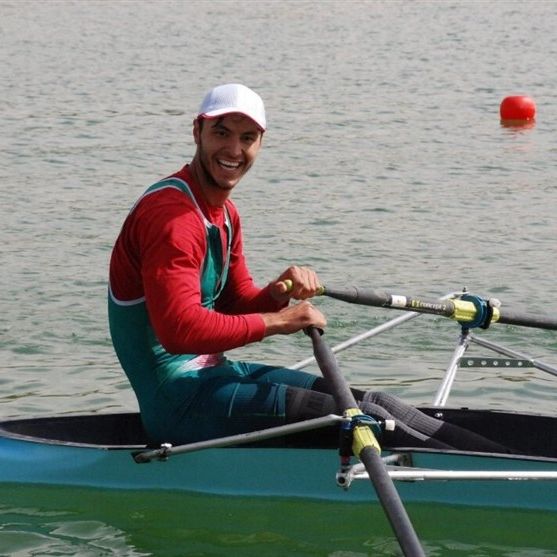
Iranian rowing Asian gold medalist Bahman Nasiri has left the national team as he emigrated to the Republic of Azerbaijan.
The head of Iran’s canoeing and rowing federation, Alireza Sohrabian, said on Saturday that Nasiri wanted to be employed by the federation, but it didn’t happen, making him leave the team.
He had left Iran before but returned to the country following promises by authorities.
Nasiri had pocketed a gold medal for the Islamic Republic in men’s single scull and a bronze in quad sculls category at the 2019 Asian Rowing Cup.
It is not yet clear whether he will be representing Azerbaijan in international competitions.
About 30 Iranian athletes in recent years have defected from Iranian national teams and sought asylum in other countries, including Judo champion Saeid Mollaei, Greco-Roman national team wrestler Ali Arsalan, and many others, due to a lack of attention, threats and corruption in their federations as well as Iran’s policy of not allowing athlete to compete against Israel. For women mandatory hijab is also an issue.
Also on Saturday, judoka Mohammad Rashnonezhad, another Iranian judo champion who left the country, played against an Israeli opponent as a member of the refugees’ team of International Judo Federation, something he couldn’t do as an Iranian athlete.
Last week, karate champion Sajjad Ganjzadeh criticized the Islamic Republic for not allowing athletes to play matches against Israeli competitors, saying, "We cannot tolerate this anymore. Not competing is more difficult than competing”.
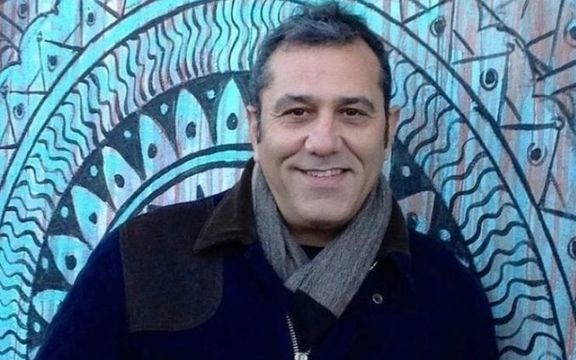
US Secretary of State Antony Blinken has called on the Iran to release US Iranian dual national Emad Sharghi and stop its policy of holding people as political pawns.
In a tweet on Saturday, Blinken said, “For four years, the Shargi (Sharghi) family has waited anxiously for the Iranian government to release Emad”.
Calling on Iran to stop this “inhumane practice” and release Emad, he added that “Like too many other families, their loved one has been treated as a political pawn”.
Earlier in the day, Special Envoy for Iran Robert Malley also called for his release, saying, “Shargi was arrested 4 years ago today. He was cleared of all charges, but then convicted in absentia, rearrested, and has now spent over 500 days in Evin Prison”.
“Emad, the Namazis, and Morad Tahbaz must all be allowed to come home now”, Malley added.
On Friday, Republican Senator Marco Rubio twitted for the release of Sharghi, noting that he remains unjustly detained in the notorious Evin Prison under false charges.
The 56-year-old businessman was arrested on December 6, 2020. According to reports, he has been sentenced to ten years in prison on charges of espionage and collecting military intelligence but had attempted to flee while on bail awaiting the result of an appeal.
Foreign governments and human rights organizations have accused Iran of detaining foreigners and dual nationals on trumped up charges to use them for getting concessions from Western countries.